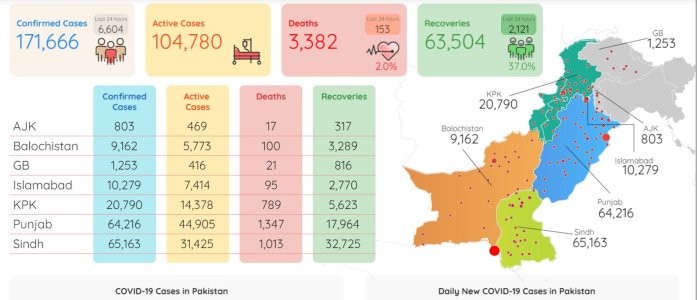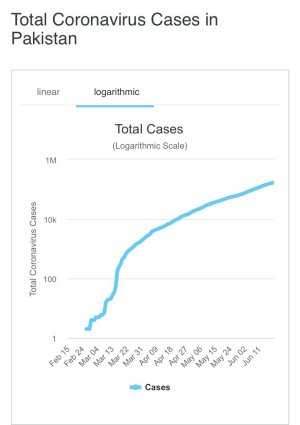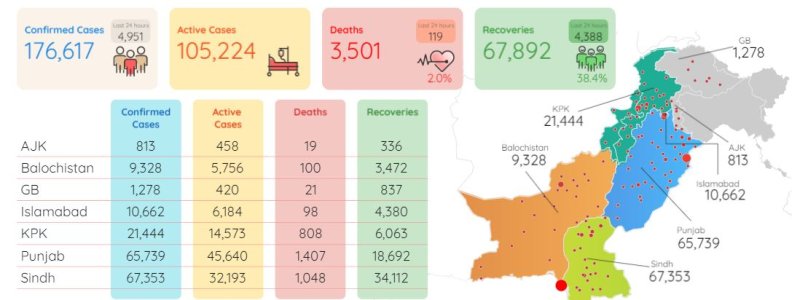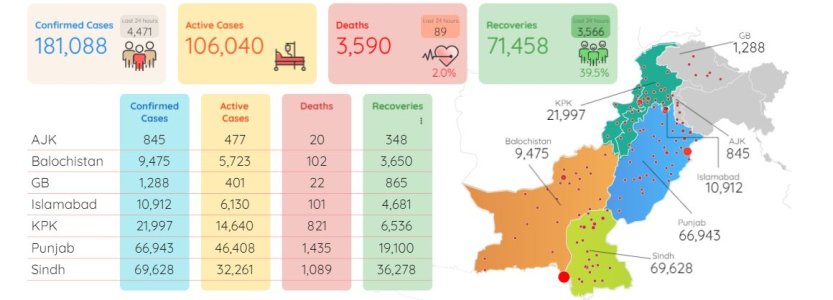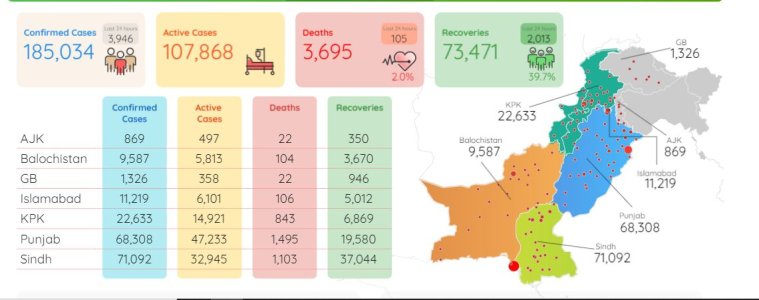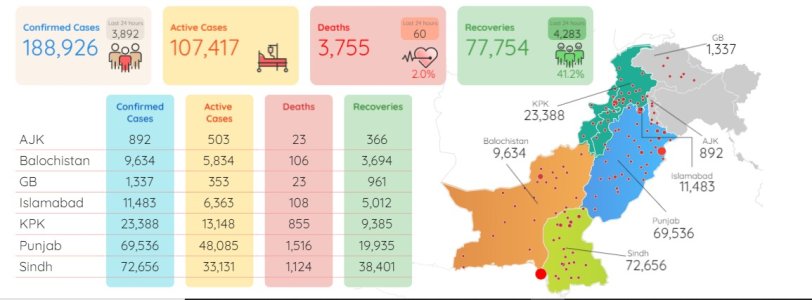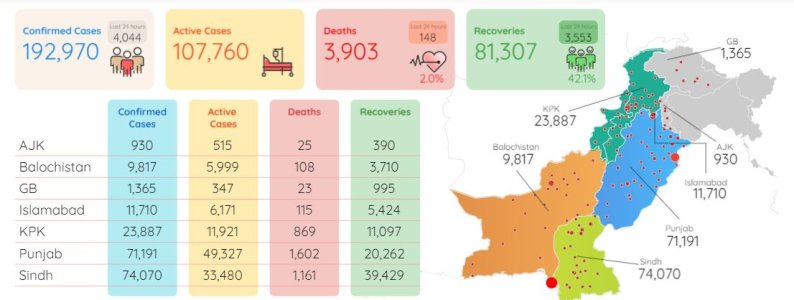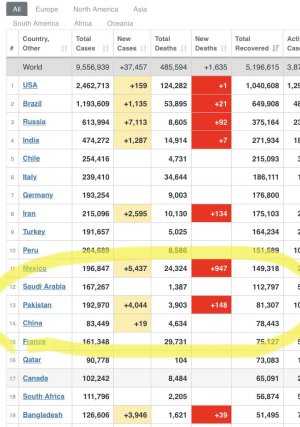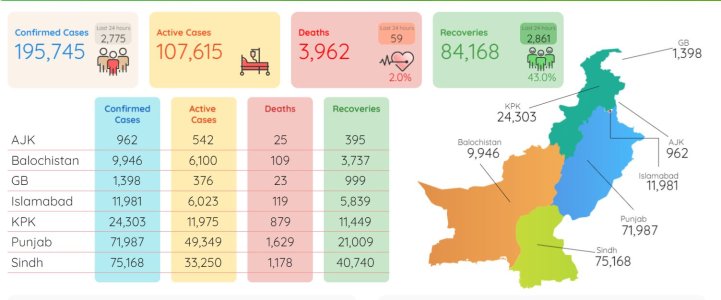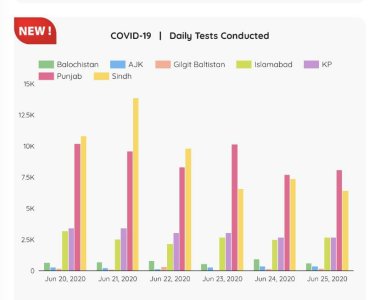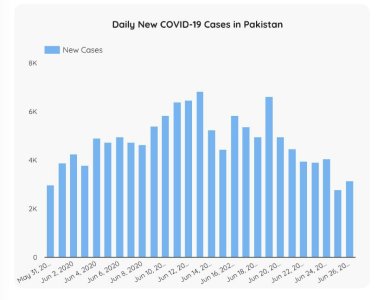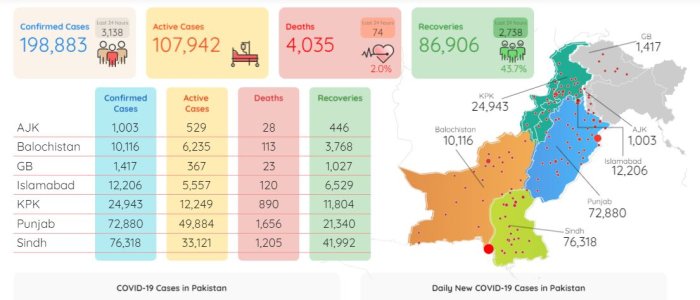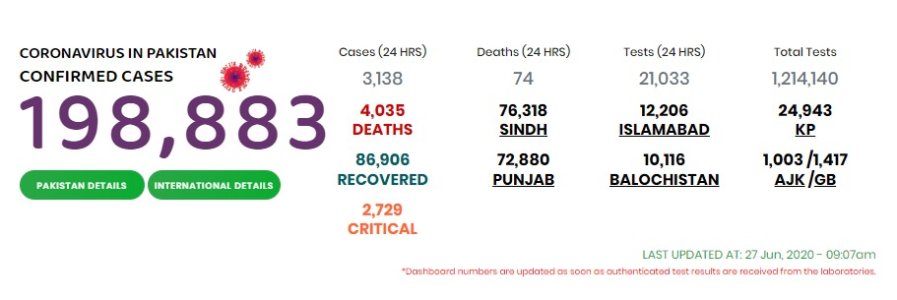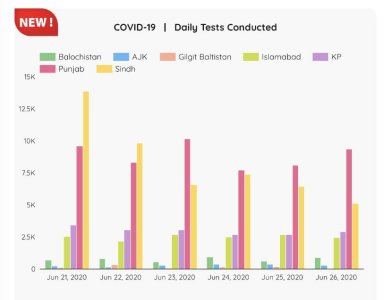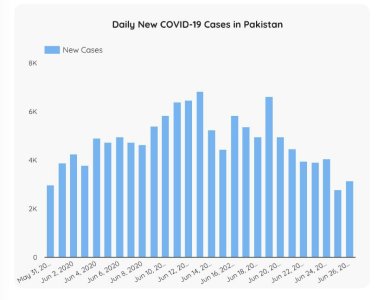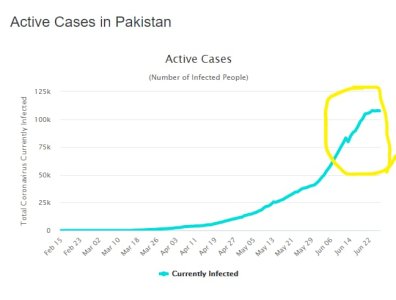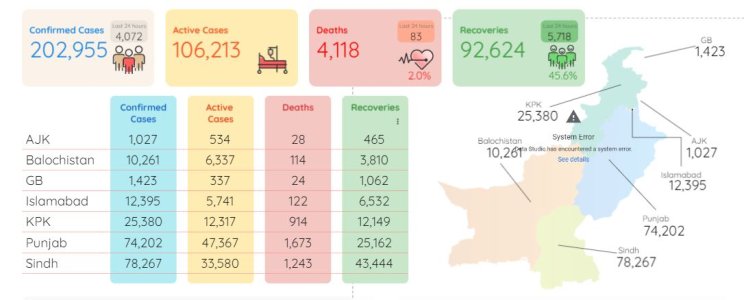KARACHI: The chief of prisons for Sindh province said on Friday that 896, or a quarter, of Karachi Central Jail’s 3,500 prisoners had tested positive for the coronavirus, but a major prisoner rights group put the number at several hundred more than the official count.
COVID-19, the disease caused by a new coronavirus, has spread rapidly behind bars in Pakistan and across the nation, rights groups say. But scant testing and inconsistent reporting from authorities is frustrating efforts to track or contain its spread, particularly in local jails. Figures compiled by police appear to undercount the number of infections dramatically, experts say.
Uneven testing in prisons and erratic reporting of confirmed infections have profound implications for health officials tracking the spread of the disease, because epidemiologists see jails as key pathways of transmission.
On Friday, the rights group Justice Project Pakistan (JPP) said 1,293 prisoners, or about 37 percent, of Karachi Central Jail’s total inmates had the coronavirus. The group uses media reports to track infections in Pakistan.
In an interview with Arab News late on Friday night, Kazi Nazir Ahmed, the inspector general of prisons’ police in Sindh, dismissed JPP’s figures and said “896, which makes 25 percent of total inmates, have tested positive for coronavirus.”
Karachi’s Central Jail has the capacity to hold 2,400 prisoners but around 3,500 inmates were housed there, making it “badly overcrowded,” Ahmed admitted.
However, to create more space and enforce safety rules, he said 320 convicted prisoners had been moved to other prisons in the province and a team from the district health department was regularly testing inmates.
“Thirty cells and nine barracks have been converted into a quarantine center where the affected prisoners have been kept,” Ahmed said, adding that one isolation ward has also been set up for patients in critical condition.
Soap, sanitisers and surgical and washable masks had been distributed among all the prisoners and staff, while infrared thermometers were used regularly to check their temperature, the jail chief said. Doctors were available round the clock, he said, and old and sick prisoners had been segregated from healthy inmates.
The official said no new prisoners were allowed to enter the jail until they had been tested for the coronavirus.
Many of Pakistan’s jails keep inmates for short stays: arrestees awaiting trial or people serving short sentences. The churn of these inmates raises the risk of infections among both the inmates themselves and jail staff, who can carry the virus to and from the community.
Prisons, which hold convicted criminals on longer sentences, are also fertile ground for the virus. While inmates come and go far less frequently, the virus can be carried in from the community by a single contagious staffer, spread quickly in crowded cell blocks, and re-introduced to the community by other, newly infected workers.
The Justice Project Pakistan, which has compiled data from 114 prisons across the country, says only 25,456 of Pakistan’s total 77,275 inmates, a little over 30 percent, housed in 114 prisons have been convicted for crimes, while 48,008 are under trial, with many being held for minor offenses.
At present, JPP says 1,624 inmates in Pakistan have Covid-19, with Sindh province recording the highest number of positive cases at 1,475, of which almost 80 percent are at Karachi’s Central Jail.
Sindh province is followed by Punjab with 118 infected prisoners, Balochistan with 26 and Khyber Pakhtunkhwa with five, according to JPP figures. As of Friday, three inmates with the infection had died, of which two belonged to Sindh, JPP said.
The Sindh government adviser for prisons, Aijaz Jakhrani, said only one inmate, a man in his eighties, had died of the virus, telling Arab News that the government had taken immediate steps to ensure the safety of prisoners when the first case was reported in Karachi’s Central Jail in May.
“As a first step, the population of overcrowded Karachi central jail was brought down by sending inmates to other prisons of the province,” he said, creating space to quarantine infected inmates “whose number has also decreased with the recovery of over 300 prisoners.”
Rights groups are skeptical these efforts are working.
“The emergence of cases in Karachi Central Jail and other prisons of Sindh is alarming but not surprising: how can we expect prisoners to be holed up in tiny cells together and not contract the virus,” JPP spokesman Ali Haider Habib said. “Two thirds of Pakistan’s prison population hasn’t even been convicted. Many among them are sick and elderly. They will die in prison.”
He said overcrowding not only left prisoners more vulnerable but made it harder for prison officials and prisoners to observe safety guidelines.
On May 21, former inspector general of prisons in Sindh, Nusrat Hussain Mangan, wrote a letter to the home department recommending the release of four patients who had tested positive for the coronavirus. The prisoners were not released and one of them, a convict named Bahawal Khan, had died in jail.
According to JPP, of 77,275 total inmates in 114 Pakistani prisons, 1,184 are women and 1,500 are elderly inmates over 60 years of age, while 2,100 prisoners have miscellaneous ailments, 2,400 have contagious diseases like HIV, TB and hepatitis and 600 have been diagnosed with mental illnesses.
In Punjab, 47,007 inmates are being kept in 42 jails with a capacity for 32,477 prisoners. There are 9,642 prisoners in 37 jails in Khyber Pakhtunkhwa while Balochistan has 2,088 prisoners in 11 jails. In Sindh the overcrowding ratio is 32.23 percent, with 17,239 inmates jailed in 24 prisons which have a capacity to hold only 13,038 inmates.
There are 223 elderly inmates aged 60 and above in Sindh prisons, 208 diagnosed with hepatitis, 39 are HIV positive, 27 have tuberculosis, 235 have mental illnesses and 662 have miscellaneous ailments.
https://www.arabnews.pk/node/1692696/pakistan#.Xu4TmwEI-Rs.twitter






